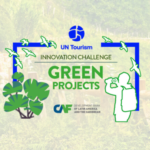Milagros,
An Extraordinary Bear
The First Climate Positive Animated-Film in the World supporting Reforestation and Ecosystem Restoration.
The Goal
Science-Based Ecosystem Restoration by planting 100,000 trees using a wide diversity of plants to safeguard the habitats of endangered wildlife species listed in the IUCN Red List by 2030.

MILAGROS: FOREST FRIENDS ECOSYSTEM RESTORATION CERTIFIED PROJECT


DISCOVER THE Best FOREST FRIENDS CERTIFIED PARTNERSHIP SEAL FOR YOUR BUSINESS
Accelerator
Organizations dedicated to accelerating ecosystem and wildlife restoration for nature positive impact projects promoting and supporting the involvement of more organizations, fostering a collective effort.
Partner
Organizations deeply committed to long-term ecosystem and wildlife restoration that are actively engaged in nature-positive impact projects.
Participant
Individuals or organizations dedicated to contributing to ecosystem and wildlife restoration for nature’s positive impact through tree planting initiatives.
You can support this initiative!
Ecosystems restoration in benefit of the Andean Bear
Beautiful Positive Impacts
Green Initiative’s partnership with Chaska Entertainment revolutionizes the production and distribution of the animated film “Milagros, una osa extraordinária” by Restoring Ecosystems, setting new climate standards in the industry.
Our collaboration with Chaska Entertainment ensures that every aspect of the film’s creation follows sustainable practices and eco-friendly principles. From pre-production to post-production, we prioritize reducing carbon emissions, minimizing waste, and conserving resources.
By integrating environmentally conscious strategies into the filmmaking process, we aim to inspire and educate audiences about the importance of preserving our planet. Through “Milagros, una osa extraordinária,” we bring together the magic of storytelling with a powerful message of environmental stewardship.
Join us in this groundbreaking partnership as we strive to make a positive impact on both the entertainment industry and the planet. Together, we can create a brighter, greener future for generations to come.
This film is a magnificent endeavor geared to touch the hearts and minds of youth and adults. It presents the beauties of the natural world and calls for human responsibility to protect and restore ecosystems worldwide.
The film production and its distribution process will pass through Green Initiative´s Climate Positive certification cycle. A new standard for family entertainment and environmental education, recognized by the United Nations Decade Ecosystems Restoration Program and by the United Nations Climate Change Organization.
Led by Chaska Entertainment, the international distribution of “Milagros, a unique bear” provides all partners engaged in this venture, with a unique opportunity to set an environmentally responsible benchmark for family entertainment.

The Beauty of it
Science-based ecosystems restoration
Strategy
Connecting people and companies who would like to support unique ecosystem restoration
Biodiversity
Recovery of biodiversity loss in the Amazon Basin
Market-based Solutions
To raise the interest in ecosystem restorations at critical biodiversity hotspots
Unique Value Added Proposition
Adding value to private sector investments by developing climate action and nature positive impacts
The First Climate Positive Animated-Film in the World
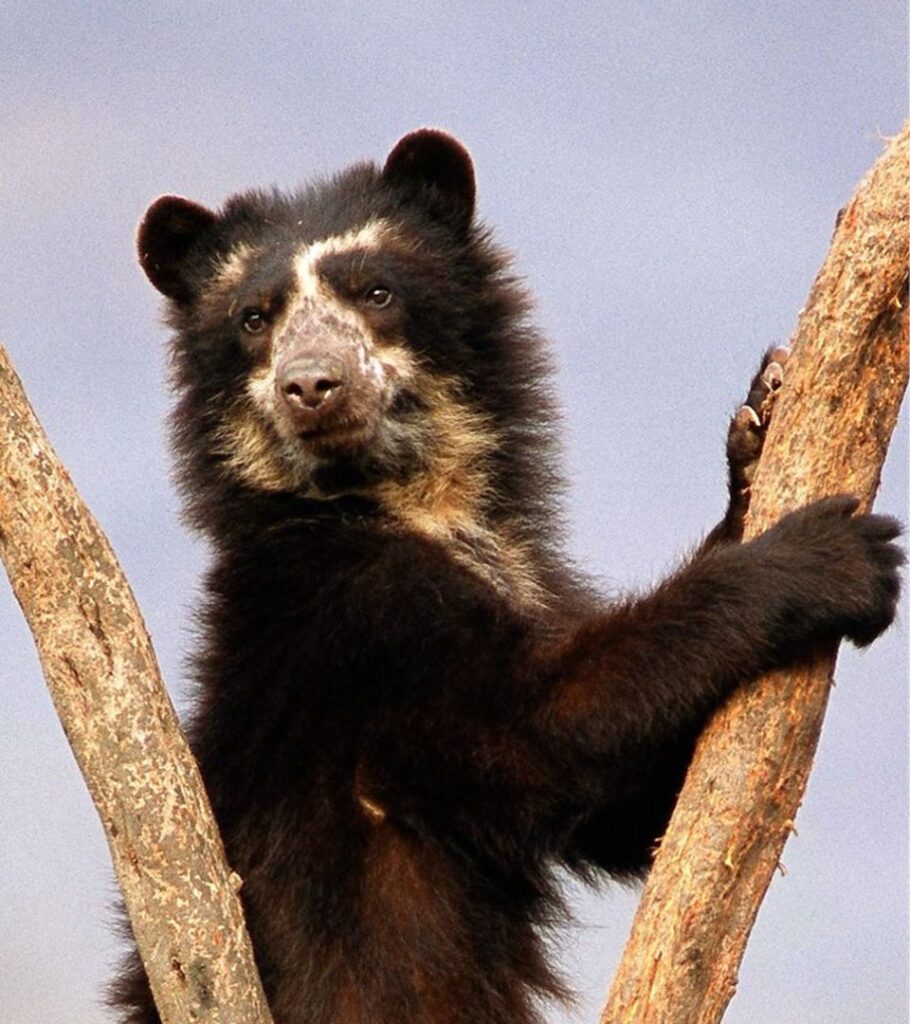
MILAGROS: FOREST FRIENDS ECOSYSTEM RESTORATION CERTIFIED PROJECT


DISCOVER THE FOREST FRIENDS CERTIFIED PARTNERSHIP SEALS FOR ECOSYSTEM RESTORATION PROJECTS
Partner
Organizations deeply committed to long-term ecosystem and wildlife restoration that are actively engaged in nature-positive impact projects.
Accelerator
Organizations dedicated to accelerating ecosystem and wildlife restoration for nature positive impact projects promoting and supporting the involvement of more organizations, fostering a collective effort.
Participant
Individuals or organizations dedicated to contributing to ecosystem and wildlife restoration for nature’s positive impact through tree planting initiatives.
You can contribute!
Additional Flora and FAUNA Benefited
IUCN Red List species

Caoba
Swietenia macrophyla

Quinilla
Manilkara bidentata

Sangre de grado
Croton draconoides
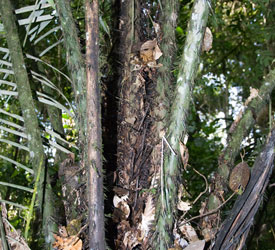
Huicungo
Astrocaryum huicungo
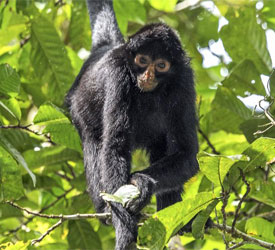
Mono maquisapa
Ateles chamek
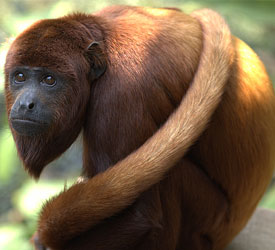
Mono coto
Alouatta seniculus

Jaguar
Panthera onca

Oso hormiguero
Myrmecophaga tridactyla

Guacamayo azul y amarillo
Ara ararauna
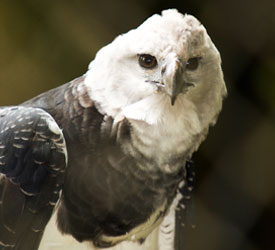
Aguila harpía
Harpia harpyja
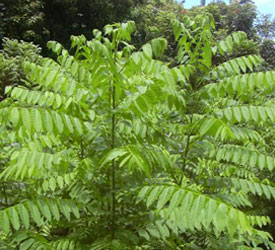
Cedro
Cedrela odorata
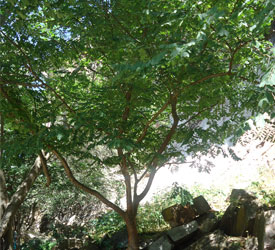
Ishpingo
Amburuna cearensis
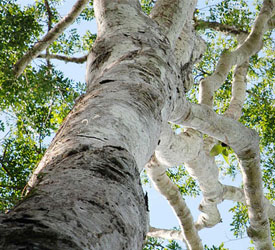
Copaiba
Copaifera paupera
TAMBOPATA - MADRE DE DIOS IMPACT REGION
IMPACT
INDICATORS
All this biodiversity represents 5% of all biodiversity in the world (Smithsonian Institute, Regional Strategy of Biological Diversity of Madre de Dios) and 15% of the peruvian Amazon, conserving 12% of the reserves of Amazon Carbon (WWF).
The Positive impacts of the
Milagros project
to the region
Science-Based Ecosystem Restoration by planting 100,000 trees using a wide diversity of plants to safeguard the habitats of endangered wildlife species listed in the IUCN Red List by 2030, among timber species, fruit trees and palm trees, with the means of developing sustainable activities of economic value, recovery of biodiversity and reduction of deforestation, as well as contributing to carbon capture, reducing the emission of greenhouse gases, reducing the erosion of soils, and generating environmental services for the benefit of the local population.
Reforest and enrich the forest to protect the habitat of threatened wildlife species included in the IUCN list of threatened species of wildlife, such as mammals, birds, reptiles and likewise. These reforested areas act as fauna corridors to recover fragmented habitats for wild animals, and maintain, in this way, the genetic exchange.
Provide seasonal employment to local inhabitants. Each tree will be planted either by the owner of the land to be reclaimed or by a local inhabitant of the community. Giving them incentives and training and making them feel part of the solution will ensure that they protect trees in the future for the good of the planet and their own livelihoods.
Restore 1 hectare planting 1,000 thousand trees, among timber species, fruit trees and palm trees, with the means of developing sustainable activities of economic value, recovery of biodiversity and reduction of deforestation, as well as contributing to carbon capture, reducing the emission of greenhouse gases, reducing the erosion of soils, and generating environmental services for the benefit of the local population.
Work with local communities to raise awareness of conservation and sustainable use of biodiversity, the installation of communal nurseries.
Reforest and enrich the forest to protect the habitat of threatened wildlife species included in the IUCN list of threatened species of wildlife, such as mammals, birds, reptiles and likewise. These reforested areas act as fauna corridors to recover fragmented habitats for wild animals, and maintain, in this way, the genetic exchange.
Provide seasonal employment to local inhabitants. Each tree will be planted either by the owner of the land to be reclaimed or by a local inhabitant of the community. Giving them incentives and training and making them feel part of the solution will ensure that they protect trees in the future for the good of the planet and their own livelihoods.
Ecosystem Yearly Restoration Cycle of Species
Seeding

Seeding

Seeding

Seeding

Seeding

Seeding

Impact Monitoring
Once the plantation is finished, we proceed to control the state of the plants and maintain them. The plants are irrigated continuously with a pump to extract water from the river and use backpacks to irrigate the plantation. Transparency and consistency: Report pages will be available to access your updated reports.
Climate Benefits
and Carbon Capture
With each group of 1,000 trees planted in a period of 15 years in the Buffer Zone of the Tambopata National Reserve will be able to capture 3,332.27 tonnes of CO² with a margin of error of ±10%.
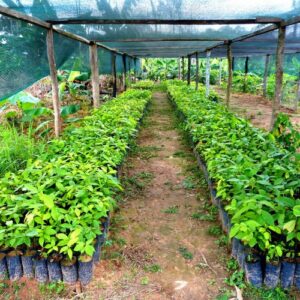

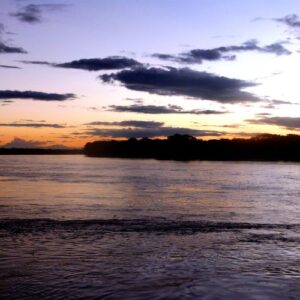
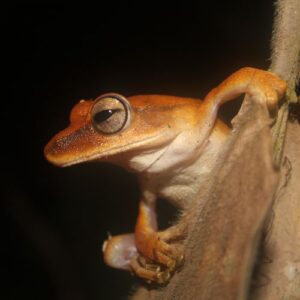
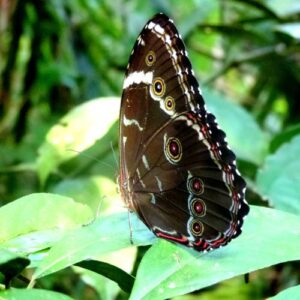
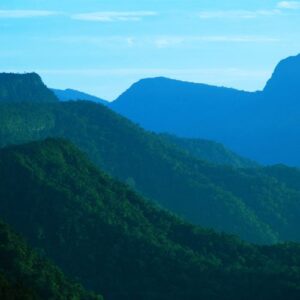
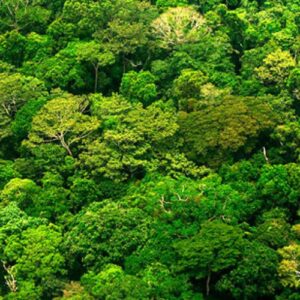
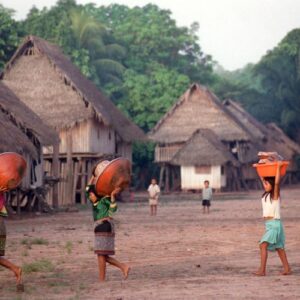
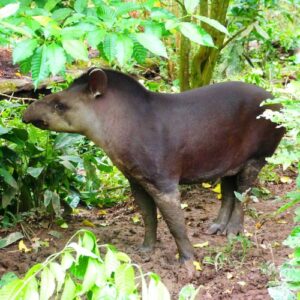
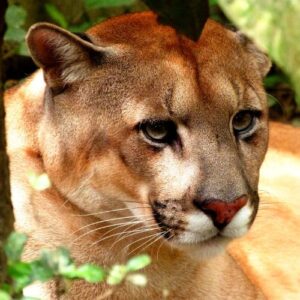
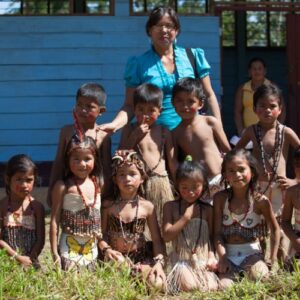

| Tree Name | Scientific Name | Trees within each 1,000 units planted | CO² tonnes capture equiv. / 15 years |
|---|---|---|---|
| Capirona | Calycophyllum spruceanum | 212 | 146.23 |
| Cedro | Cedrela odorata | 64 | 13.24 |
| Lupuna | Ceiba pentandra | 194 | 1,544.02 |
| Limón Sutil | Citrus aurantifolia | 50 | 1.77 |
| Naranja | Citrus sinensis | 50 | 12.32 |
| Shihushuaco | Dipteryx micrantha | 34 | 28.54 |
| Wasai | Euterpe precatoria | 4 | 1.52 |
| Huito | Genipa americana | 47 | 40.14 |
| Bolaina Negra | Guazuma ulmifolia | 9 | 2.87 |
| Quinilla | Manilkara bidentata | 126 | 521.46 |
| Aguaje | Mauritia flexuosa | 30 | 22.35 |
| Camu-camu | Myrciaria dubia | 40 | 0.28 |
| Moena Alcanfor | Ocotea costulata | 2 | 8.28 |
| Ungurahui | Oenocarpus bataua | 80 | 9.20 |
| Chimicua | Pseudolmedia laevis | 9 | 17.88 |
| Espintana | Pseudoxandra williamsii | 2 | 0.22 |
| Guayaba | Guayaba | 1 | 0.15 |
| Yacushapana | Terminalia oblonga | 28 | 92.70 |
| Copoazu | Theobroma grandiflorum | 18 | 869.11 |
| Total | 1,000 | 3,332.27 |
Local Partners

A non-profit organization committed to scientific research as a basis for the conservation of biodiversity, education, and the well-being of local communities.
Inkaterra Association has the support of influential organizations such as Geographic Society, Smithsonian Institution, Global Environment Facility (United Nations), Conservation International, World Bank, International Game Fish Association, Cornell Lab of Ornithology, CAF (Development Bank of Latin America), Harvard University, University of Oregon, Agrarian University –La Molina, Mayor San Marcos National University, etc.

Acción Andina maintains healthy Andean ecosystems and will help to perpetuate the ecosystem services of one million hectares of Polylepis forests and high Andean wetlands.
With large-scale restoration and conservation actions provide both economic and conservation benefits to communities.
Their model and its results will be replicated in other biospheres on the planet.
GFG and ECOAN lead Acción Andina together as the managing partners.

Forest Friends™ is a pioneering certification developed by Green Initiative, designed to actively support reforestation efforts that contribute to Science-Based Ecosystem and Wildlife Restoration, ultimately transforming lives through the creation of biodiverse forests.
Since 2015, Green Initiative’s certifications have empowered both public and private organizations to establish science-based emissions reductions targets, while also guiding them towards verified carbon offset solutions.
Our primary focus is to encourage and prioritize biodiversity, which has been the driving force behind our original inspiration and remains our unwavering aspiration.
Ecological Restoration Approach
GLOBAL STANDARDS
AND PRINCIPLES
WHERE
Tambopata National Reserve, department of Madre de Dios, Peru - Biodiversity Hub.
What
Actions for the Recovery of Ecosystems, Habitats and Native Species.
Approach
Task Force on Best Practices of the UN Decade on Ecosystem Restoration, which supports the development of global principles for ecosystem restoration.
Alignment
Methodology and Principles of the UN Decade for Ecosystem Restoration.








